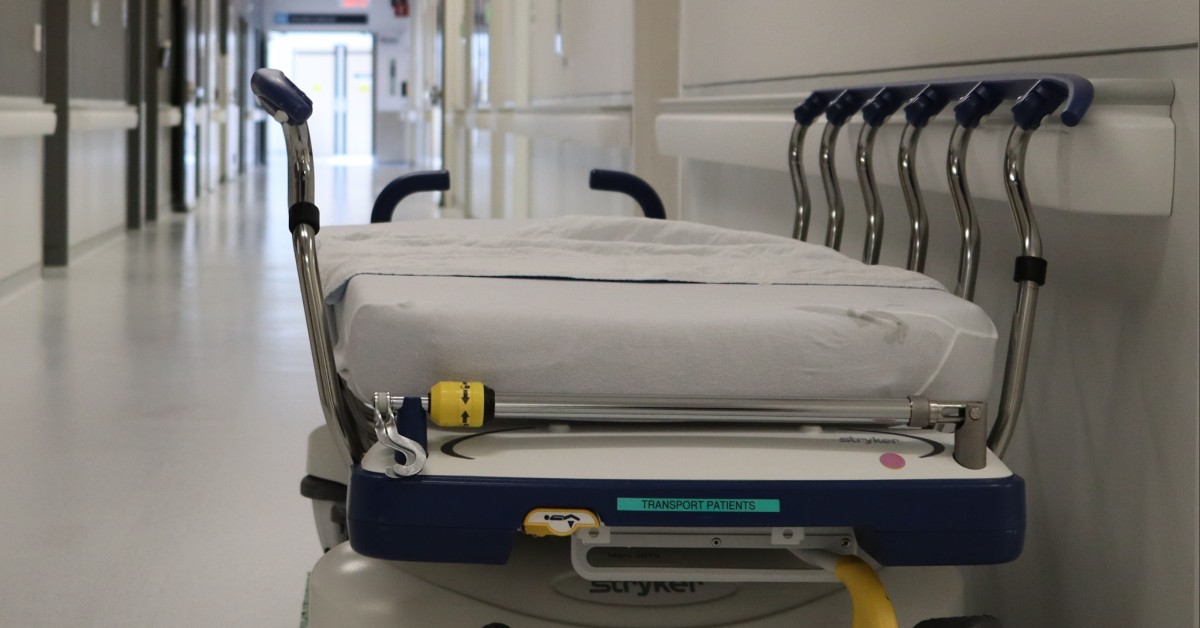
How to Become a Health Services Manager,and How Much $$$ You'll Earn Doing It.
On average, health services managers earn over $100,00 per year. [...]

If you’re a nurse who seeks the added responsibility (and income) of supervising others yet aren’t ready to forgo entirely treating patients, the nursing world has the perfect job for you. As a charge nurse, you’ll be both a doer and a leader, a caregiver and a supervisor.
With a combination of advanced education, honed leadership skills, and on-the-job managerial experience, you can ascend to nursing management. It is not uncommon for charge nurses to continue their career progress to the position of nurse manager, director of nursing, or chief nursing officer.
In this article, we’ll cover:
A charge nurse plays a part in both hands-on patient care and management. Responsibilities include:
The Ohio Nurses Association lists over 20 typical duties of a charge nurse. Here are a few:
Most employers require charge nurse candidates to hold a four-year Bachelor of Science in Nursing (BSN). Occasionally an employer will consider candidates with a two-year Associate Degree in Nursing (ADN). However, the industry trend is toward favoring higher degrees, so such opportunities—already uncommon—should grow increasingly rare.
Thus, it is possible to get a job as a charge nurse as an LPN. Most opportunities, however, will specify that candidates must be RNs.
__To become a licensed practical nurse, you’ll need to:
To become licensed as a registered nurse (RN), you must:
Obtaining a two-year Master of Science in Nursing (MSN) may not be required, but it’s worth considering all the same. The MSN opens many opportunities closed to ADNs and BSNs. It will certainly help if you’re looking to advance to the next levels in leadership, such as director of nursing or chief nursing officer.
Online nursing degrees for associate’s, bachelor’s, and master’s programs are available. There are accelerated BSN and accelerated MSN programs, which allow you to earn both degrees in five years. Candidates who have an associate’s degree and are already RNs can get their BSN or MSN faster by enrolling in a RN to BSN or RN to MSN program.
Top nursing programs are expensive, so you should carefully consider the cost and benefit of any nursing degree you pursue. If you aspire to a top leadership position or to a role in public policy, it may be worth your while to pursue a nursing degree at a highly ranked program like Johns Hopkins University or Duke University.
If, however, your goal is to work locally and ascend to lower- or mid-management roles, you will likely be just as well served by your local state university. You’ll incur a lot less debt in the process. Most state universities have excellent medical schools that offer nursing programs.
Another option is to pursue your nursing degree online. Online study offers the benefit of flexibility; many people continue to work while studying online. Students also can remain where they currently reside, thereby avoiding the stress and expense of relocating.
Affordable online BSN programs include:
Affordable online MSN programs include:
Hospitals administrators on the hunt for charge nurse candidates expect specific requirements and experience. The following are common qualifications you’ll find in a charge nurse job description.
These should appear on your resume:
In addition to these experiential and academic qualifications, charge nurses also need a particular set of soft skills. Employers typically favor candidates who are:
The first step in preparing for a charge nurse interview is getting your résumé ready. Career website Job Hero offers sample charge nurse resume templates to help you get started.
You can also begin prepping for interview questions. Glassdoor offers 90+ charge nurse interview questions that former candidates have been asked in charge nurse interviews. These include:
Compared to a typical RNs average hourly pay of $29.30, charge nurses earn an average $31.99 per hour. With 20+ years of experience, hourly pay can jump up to $36.10 per hour. Pay can vary by location and skillset as well, per PayScale data.
Here’s where charge nurses can earn more:
The top skills and experiences for charge nurse additional income:
Most charge nurses work in hospitals or other healthcare settings, such as nursing homes or long-term care centers, according to PayScale. Since a charge nurse is essentially the acting manager of their specific department, your charge nurse career can vary based on the environment of your department. You may oversee areas such as:
Nurses can advance from supervisory roles such as charge nurse, nurse manager, or nurse supervisor to higher-level nursing titles, such as director of nursing or chief nursing officer (CNO), both of which usually require a master’s degrees. Directors of nursing earn an average salary of $90,568 annually, compared with CNOs, who earn $126,005 per year, according to Indeed.com.
Here are some guides form our team here at Noodle.com on paying for your education:
Think a leadership role as a charge nurse is your calling? If you believe you can gain the respect and trust of your colleagues, lead them through often stressful shifts, bring calm and clarity to anxious patients, and use your top-notch management skills effectively 24/7, becoming a charge nurse may the career path you’re meant to walk (in comfortable shoes).
(Last Updated on February 26, 2024)
Questions or feedback? Email editor@noodle.com

On average, health services managers earn over $100,00 per year. [...]

Not everyone in a hospital wears scrubs. Some, like hospital [...]

Health care systems require social workers to assist individual patients [...]

Women's health care is a booming sector in the medical [...]

A Doctor of Nursing Practice (DNP) degree qualifies you for [...]
Categorized as: Medicine, Nursing & Healthcare